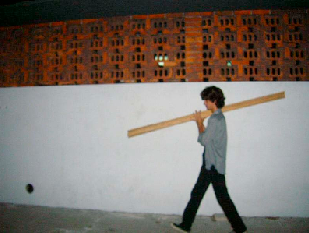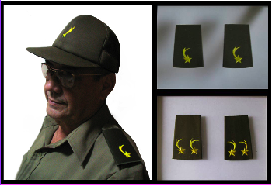Cátedra Arte de Conducta
Founded by Tania Bruguera
One of the contributions of this project was to offset the lack of existing academic centers in the country. La Cátedra Arte de Conducta has a horizontal organization, mechanisms or dynamic and interactive work and members of diverse origins. All these factors allow students from a mainstream education, with formal foundations, to be integrated in another type of creative experience.
La Cátedra has a fixed number of entries and a predetermined training time (two years). However, its operation is such that graduates usually maintain ongoing and fluid contact with it. This generates a form of work in progress, which promotes educational exchanges.
In addition, one of the objectives of the course is to enable a direct dialogue between national and international art, including through the intervention of some of its major players such as visiting professors. To date, Cuban and foreign artists were able to share their experiences in workshops designed specifically for this project. Thus, the creator access to training in a more human social activity, which simultaneously debunks the media image of the artist.
The type of training provided by the Cátedra drifts from permanent artistic experiences that will share its services to the social, therefore the use of new technologies is essential for that the documentation and presentation of the works are achieved. Currently, it has a recording studio and video editing, photography and sound. Participants can work with advanced equipment, equivalent to those of developed countries. It s about a common life around the technologies, excluding exceptional or privileged situations.
Due to the lack of access to information that exists in the country, Cátedra Arte de Conducta initiated the creation of archives specializing in international contemporary art particularly in its social and performative aspects, by subscribing to art magazines and contemporary sociology, buying books on cultural theory and art history. The library and media center offer a platform for access to information that lets students expand their horizons and adopt different benchmarks views. Moreover, this action goes hand in hand with an intention to recover the historical memory of Cuban art.
The project grew slowly at the national and international levels. During its five years of existence, the Cátedra Arte de Conducta created new actions born from necessities conformable with the ones of a sociological study, aiming to increase the impact in the community. The works have been done with the participation of institutions from marginalized sectors or poorly represented. Similarly, exhibitions have been held frequently in this type of spaces.
Today, the project is expanding. It added to its educational work, the production associated with the development of creative activity of its graduates. This gesture corresponds to the desire to fill important gaps in contemporary Cuban art, namely the lack of scholarships and financial aid for conceiving artistic works.
In recent years, the National Art took a new aspect that has made the art an elitist activity directed to the commercial. Our desire was to develop an alternative to this trend by rehabilitating the social discourse of art. After five years of continuous practice, the works of the Cátedra Arte de Conducta represents the most experimental art production in Cuba today.
Students of Tania Bruguera
For more information
Jeannette Chàvez, Núria Güell, Carlos Martiel, Francisco Masó Alfonso, Adrian Melis, Levi Orta and Alejandro Ulloa Rodriguez

- Adrian Melis (diplômé de Arte de Conducta), Vigile – [projet bon, beau et bon marché], Documentation vidéo (4:30), 2005-2006 « Dans notre pays, il existe des institutions dont les ressources sont constamment victimes de détournements. Parmi ceux là, les menuiseries de l’Etat. En utilisant mes relations avec le gardien de l’une d’elle, j’ai obtenu une certaine quantité de bois provenant de cette institution et je l’ai ensuite employée pour construire un poste de surveillance dans ce même centre. » –

- Jeannette Chàvez, En changeant d’Etat, 2005. C’est sur le chapeau et les épaulettes que se trouvent les insignes qui désignent le grade du militaire. Il s’agit d’un Major et j’ai ajouté à l’étoile qui représente son titre, la queue d’une comète. A présent, il est lieutenant-colonel. –
Share